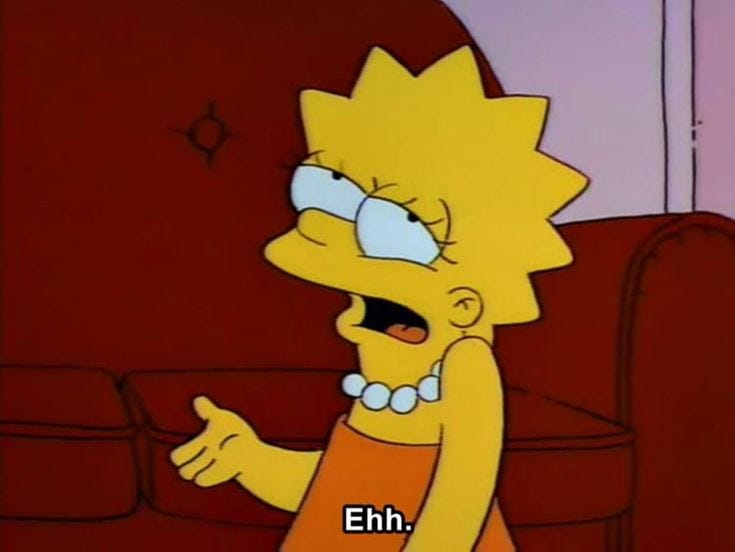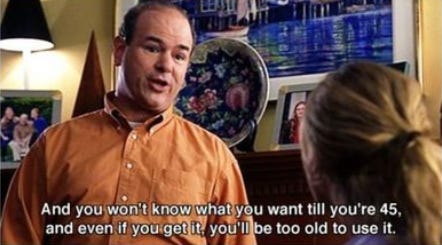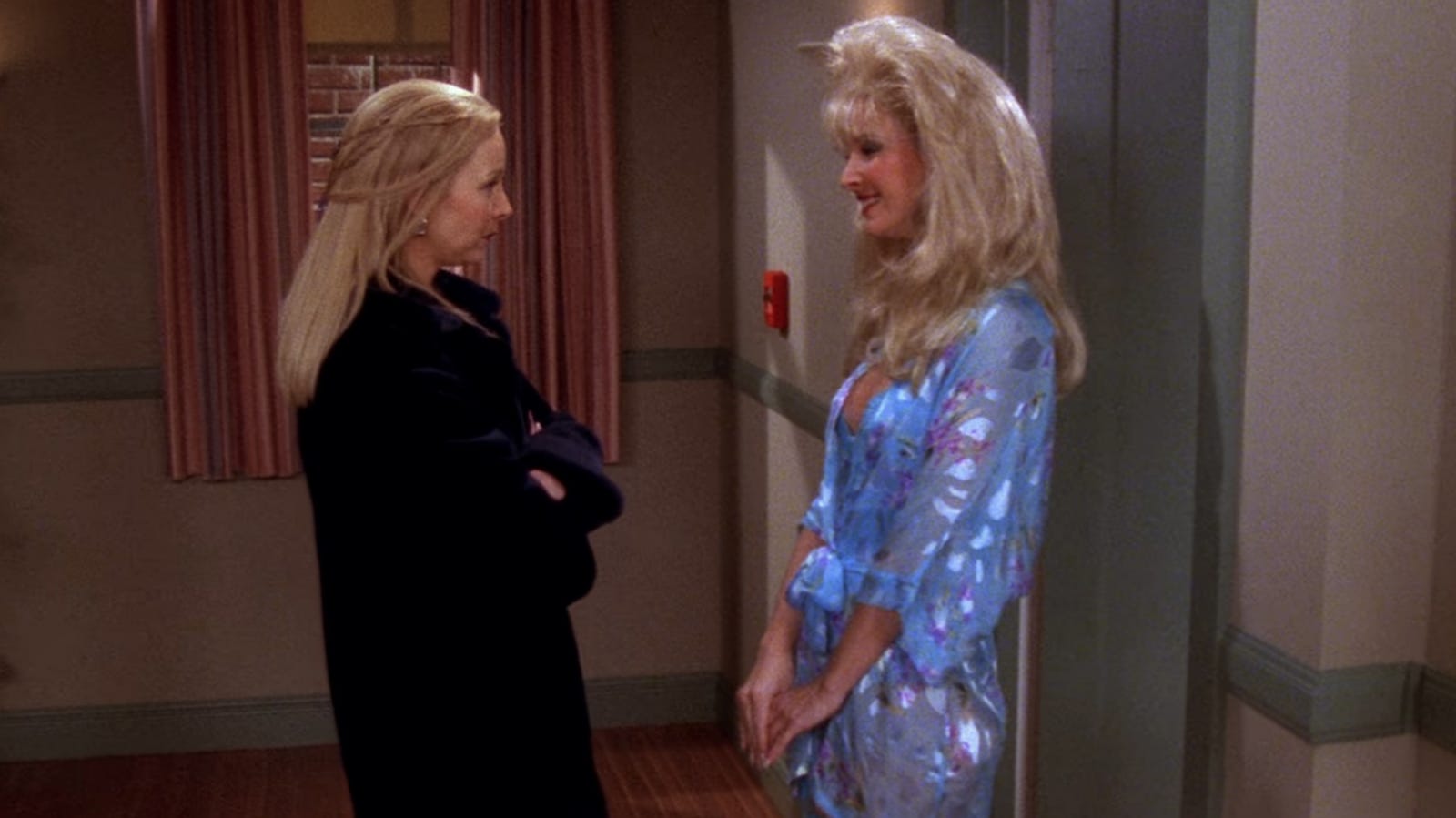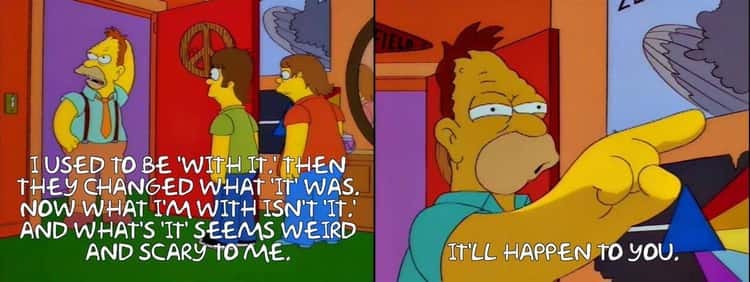You, Me, and Ennui
It turns out you can just be whelmed
Gidday Cynics,
I was planning to write a follow-up to the previous piece on routines, but it turns out I have the gift of prophecy. Here’s what I said last week:
The problem with a planned schedule or routine is that it will inevitably, often immediately, break. If you have anything like a normal life, something unforeseen will come up. In the likely event that whatever life throws at you is going to take more than thirty minutes, your precious schedule is fucked.
Being a pessimist has its advantages; mainly that you’re occasionally pleasantly surprised. But habitually expecting the worst also means that you come to hate being right, and boy, was I right about plans being immediately foiled. Just when I was getting all stoked with myself for sitting down with Louise and planning out a routine that would actually work around our family needs,1 I got hit with the one-two punch of munting my back and man-flu. As in, it wasn’t Covid, and probably wasn’t influenza, but a gnarly head cold that immobilized me for the best part of 24 hours. After that, my voice sounds like a bandsaw cutting through a wasps’ nest, I’ve been coughing up gobs of stuff that could plausibly be used to seed life on barren planets, and I’ve become exhausted through my efforts to not drive myself too hard.2
So I was stoked to have my guest piece run on Webworm, and even stoked-er to have the very first Cynic’s Guide guest piece land in my inbox. Let me introduce Lucy. She’s a regular here — if you’ve checked out the comments you’ve probably seen her laying down some insight. She also happens to be one of my oldest friends. Lucy and I have been mates since we worked together on the Waikato University student magazine, in the Ancient Times. I say “worked” with heavy caveats — although we did do plenty of writing, we also spent a lot of time chortling over early I-can-has-cheezburger-tier memes and discussing Harry Potter fan theories.
Sigh. Remember when the young adult books you enjoyed had a modern heroine for an author instead of someone who’s gone so comprehensively to seed that they’re practically a Triffid? I remember. You don’t always know when you’re in the good times, or what dark turn is going to make them bad. And that’s probably a good segue to Lucy’s guest post, which is about finding your way through ennui.
Hi, fellow Cynics. My name’s Lucy. I’m 38, a parent, a professional development coach, and apparently experiencing late-30s ennui.
It’s strange, isn’t it, how you can have fairly in-depth knowledge of all kinds of things, but not identify it in yourself? I can tease this stuff out of people with GROW, DiSC, and various other development and self-awareness acronyms, and yet it was Josh who suggested it to me, on a sunny, wintry afternoon during one of those disjointed conversations you have when chasing your respective offspring round a playground.
And what do you do when you have a moan to a friend who happens to have a Substack about personal development? Apparently, you write a guest post.
A quick Google informs me that late-30s ennui is absolutely a thing, but (apparently) we don’t talk about it much. However, there are many, many articles about it aimed at the millennial generation — those of us who can carry on whole conversations in Golden Age Simpsons quotes, and who worry that the makers of Bluey have our houses bugged.
Full credit to Buzzfeed for the very excellent term: Millennui.

So what’s it all about?
In your 20s, you’ve got unparalleled freedom (you just don’t know it yet). You can stay out late and still manage to work the next day, because your job’s probably entry-level and (if you’re lucky) not that hard, plus you’ve got boundless energy. It’s fine if you change your mind, because your 20s are for finding out what you don’t want from life anyway. And if you get to 26 and decide you’ve got it wrong all along, that’s okay, because you can go travelling, or (appetite for student loan permitting) go and do another degree and still be in your 20s when you finish.
Yet we don’t realise it at the time. We want our lives to be like Friends, with exciting love tangles and randomly falling into high-powered jobs, and lots of time to have coffee. And when we realise we don’t like the job we got our degree to do, we worry that we wasted all this professional development time, and we’re going to be, like, old when we finally have it worked out.
And then you reach your mid-30s. By then, you may well have kids and a mortgage and be wondering if you’re saving enough for retirement. Possibly you’ve had a big relationship break down. You don’t get to see your friends often enough. In hindsight, you realise that your 20s was a time of unstructured freedom and you probably wasted a lot of it worrying about what was to come, or flitting about trying out new things and never quite finding something that stuck.
You’re a different person, because that’s what time does to you. And because you’re more worldly, you discover all these new things that you want to try, or you know what you want, but now your spare time, energy, and money is inversely proportional to your levels of responsibility and tiredness.

And this late-30s is like no other generation has experienced.
If you were born sometime during the 1980s and your experience was anything like mine (though I know experiences vary wildly), your parent/s were quite possibly doing a job they studied for at university, and expected to remain there until retirement when they’d collect a nice pension for their trouble. It’s what their parents did. (My grandfather left school at 14 to work as a paperboy, and retired as the managing director of the company.) Perhaps they advised you to go to university, then the world would be your oyster too.
But you also probably graduated sometime around 2008-2009 into a global economic meltdown. House prices and rents exploded, inflation inflated, and however hard you worked there was the looming spectre of being one restructure away from redundancy. Global politics got rougher and more divisive, the vulnerable became more so, moth holes started to appear in the social fabric…and then Covid came along, and now, as we’re still trying to catch our breath, climate change has kicked off in earnest.

I am exhausted just thinking about the last 15 years.
So, it’s not that something’s wrong with you.
It’s not that you’ve spent your adult life making the wrong choices — generally, we make the best choices with the information that’s available to us at the time. The information that we had in our early 20s is not going to be current some 15 years later, and there’s a bunch of stuff that we don’t get to control. So let’s scrap that dwelling-on-past-decisions stuff and think about what we can do now.
Figure out our values
It sounds so self help-ey and trite, but actually getting to grips with what matters to you now is an important part of breaking out of ennui. Often, we feel ‘meh’ and dissatisfied because we haven’t re-evaluated what’s important to us, so we’re still working towards what a past version of ourselves would want.
It doesn’t have to signal a seismic change, like changing careers or moving country. But it might involve removing parts of your life that aren’t serving it now — including particular activities or relationships — and replacing them with things that do serve.
Break old habits
We all have habits that really don’t help us: mine is procrastination through doomscrolling. I’ve managed to curb that by getting rid of social media apps from my phone, deleting my Instagram account, leaving all the Facebook groups that I don’t need for work purposes, and physically putting the phone in another room. Reddit’s API fiasco and the subreddits going dark has helped too!
Instead, I’m gradually starting to replace the unhelpful habits with things like drawing, actual physical books, and good old-fashioned talking to my family.
Gradual habit change is the key. I know Atomic Habits is the talk of TikTok, but I preferred Tiny Habits. More practical and less lecture-y.
Unhook from it
I am a giant fan of Russ Harris’ The Happiness Trap and cannot recommend it enough to anyone who ever has that mean little voice in their head. I named mine Ursula.

I know Josh is going to read this book and go more in-depth on it later (aren’t you?), but I like using the very simple process outlined in it, called ACE.
- Acknowledge and name the thought or feeling
- Connect with your body
- Engage with your surroundings
The key with this is that you’re not trying to make those thoughts go away, or turn it round into a positive statement, or any of those things. You’re saying, “yup, I’m having a thought, I’m going to go and do this now.” Because thoughts and emotions come and go through the day — the trick is to notice them as dispassionately as possible and let them go. You can’t control them coming (I forbid you to think about a purple giraffe eating ice cream) but you do have some control over what you do with them.
And that’s the thing with ennui. It’s a common state for a lot of us, and apparently it can be expected at particular life stages and milestones. But maybe it’s also a sign that we’ve changed — because of course we have — and now it’s time to get to know ourselves better.

Josh here again. I really liked that piece. It’s funny how often we spend ages trapped in our own heads, spinning out over quite mild things that, reframed, are often very good things (like still being alive after nearly 40 years of it) and how these same things feel much clearer and lighter after a good yarn with a mate. Which raises the possibility that you can also get some of the same clarity by talking to yourself as if you were a friend, as Lucy’s done here. Results, as always, vary — but it can be helpful, and talking to yourself nicely instead of nastily almost certainly won’t hurt.
Lucy’s just put a new Substack together. She didn’t ask, but I wanted to promote it here. It’s about business and professional development coaching, which Lucy is living proof can be done in an ethical and non-grifty way. You’re reading a self-improvement newsletter, so there’s a solid chance you’ll get something out of the excellently-named Happy Monday. If the first couple of posts are anything to go by it’s going to be very good.

Happy MondayA Substack about professional development, navigating crossroads in life and work, the work-life blend, and being happy that it's Monday.By Lucy
I’m pretty sure everyone who reads this also subscribes to David Farrier’s Webworm, but on the off chance you don’t, my guest piece is there, awaiting your eager perusal.
Thanks for reading — I’d love to discuss Lucy’s post, your experiences of late-30s ennui3, and how you deal with it in the comments.
As always, this post is free. Please, feel guilty — then, assuage that guilt by sharing the post everywhere you can.
As opposed to previous routine-generating attempts, which have not always taken family requirements into account. Those routines never worked. I have no idea why. ↩
No-one does man-flu symptoms better than me. (Yes, I talked to a doctor. Yes, it’s a cold. Paracetamol and rest.) ↩
I refuse to say “middle-aged,” no matter how cruelly accurate it is, probably because of how cruelly accurate it is. ↩






